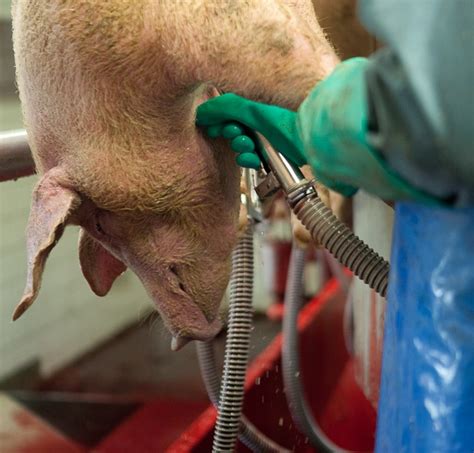Pig Blood Buying for Beginners: A Comprehensive Guide
Buying pig blood might seem like an unusual task, but for many cultures, it's a vital ingredient in traditional dishes and even some medicinal practices. This guide will walk you through everything you need to know about purchasing pig blood, ensuring a safe and successful experience for even the most novice buyer.
Where to Buy Pig Blood?
This is the most crucial question for beginners. The availability of pig blood varies greatly depending on your location and cultural practices. Here are some common sources:
-
Local Butchers: This is often the best place to start. Many butchers who work with whole pigs will have access to pig blood, either fresh or frozen. Don't hesitate to ask—even if it's not explicitly advertised, they may be able to source it for you. The advantage here is the potential for fresher blood and the opportunity to ask questions about handling and storage.
-
Asian Grocery Stores: In areas with significant Asian populations, Asian grocery stores are a reliable source for pig blood. They frequently carry it, often in packaged forms, and are familiar with its preparation and usage.
-
Specialty Meat Markets: Some specialty meat markets catering to a wider range of culinary traditions may stock pig blood. These are worth checking if your local butcher doesn't carry it.
-
Online Retailers (with Caution): While online retailers offer convenience, exercise extreme caution when ordering pig blood online. Ensure the seller has excellent reviews and adheres to proper food safety standards. Consider the shipping conditions and potential for spoilage.
What to Look for When Buying Pig Blood
Regardless of where you purchase pig blood, here's what to keep in mind:
-
Freshness: Fresh pig blood is the best option. Look for a rich, dark red color (though the exact shade may vary). Avoid any blood that appears dull, discolored, or has a foul odor.
-
Packaging: If buying pre-packaged, check the expiration date and ensure the packaging is intact and free of leaks or damage.
-
Source: If possible, ask about the source of the pig blood. Knowing the butcher's practices and the pig's health history can help ensure safety.
-
Quantity: Buy only what you need, as pig blood doesn't have a particularly long shelf life.
How to Store Pig Blood
Proper storage is key to maintaining the quality and safety of pig blood.
-
Refrigeration: If using it soon, refrigerate pig blood immediately upon purchase. It should be used within 1-2 days for optimal freshness.
-
Freezing: For longer storage, freeze the pig blood in airtight containers. This can extend its shelf life for several months. Thaw it gradually in the refrigerator before use.
Handling and Safety Precautions
Pig blood, like any raw meat product, requires careful handling to prevent contamination:
-
Hygiene: Always wash your hands thoroughly before and after handling pig blood.
-
Sanitation: Sanitize all surfaces and utensils that come into contact with pig blood to prevent cross-contamination.
-
Cooking: Pig blood should be thoroughly cooked to a safe internal temperature before consumption to eliminate any potential pathogens.
What are the common uses of pig blood?
Pig blood is used in a variety of dishes across different cultures. Its rich, savory flavor and ability to thicken sauces make it a popular ingredient. Common uses include:
-
Blood sausage (morcilla): This is perhaps the most well-known use, where pig blood is combined with grains, spices, and other ingredients to create a flavorful sausage.
-
Stews and soups: Pig blood adds a unique richness and depth of flavor to various stews and soups.
-
Blood cakes: In some cultures, pig blood is used to create savory blood cakes.
-
Medicinal uses (with caution): In some traditional medicine practices, pig blood is believed to have certain health benefits. However, it's crucial to consult with a healthcare professional before using it for medicinal purposes. Claims regarding health benefits should be viewed with skepticism unless supported by robust scientific evidence.
What are the nutritional benefits of pig blood?
Pig blood is a good source of iron, which is essential for oxygen transport in the body. However, the nutritional content can vary depending on the pig's diet and health.
This guide provides a starting point for buying pig blood. Remember to prioritize safety and freshness when purchasing and handling this unique ingredient. Always consult local regulations and food safety guidelines.

